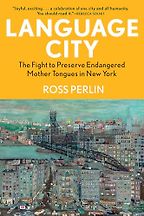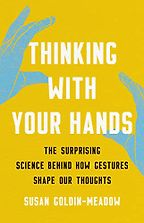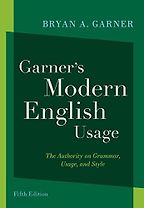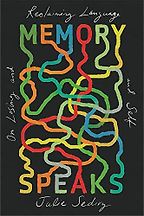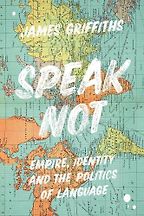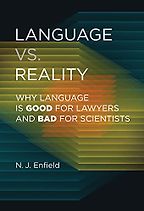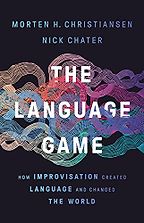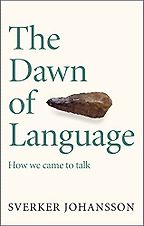New Language Books
Last updated: December 11, 2024
Our running list of new language books coming out. From the evolution of the language ability of our ancestors back in the mists of time to the latest thinking on bilingualism or multilingualism, from how language is used in politics to the politics of language: this is where we list any new books on language we like the look of.
Language City: The Fight to Preserve Endangered Mother Tongues
by Ross Perlin
🏆 Winner of the 2024 British Academy Prize for Global Cultural Understanding
“Out of 7000 languages on the planet, 700 of them can be found in New York, and many of those are endangered, because this is where refugees have ended up.I love the whole approach to keeping it alive, speaking it, connecting through it, and just enjoying the richness of it. He describes walking down the street in the borough of Queens, and just how many languages he hears in a short walk. Someone needs to do this for London.” Read more...
The best books on Endangered Languages
Samantha Ellis, Memoirist
Thinking with Your Hands: The Surprising Science Behind How Gestures Shape Our Thoughts
by Susan Goldin-Meadow
Developmental psychologist Susan Goldin-Meadow has a new book: on the importance of hand gestures for communication.
Garner's Modern English Usage (5th edition)
by Bryan A. Garner
Bryan Garner, the American equivalent of the Académie française, has updated his Garner's Modern English Usage. It's the 5th edition (the first was published in 1998), and it opens with an exchange at a car rental counter over the use of 'may' versus 'can.' He writes, "Experiences like that one give me hope: they show that some people still care about our language, however misplaced their concerns might occasionally be."
If you don't follow debates about language and grammar closely, the bottom line is this: language changes all the time, which makes it hard to say what's right or wrong. However, we do need some guidance. Garner's Modern English Usage is an attempt to grapple with this contradiction in a very practical way. And it is important: your ability to use language correctly shows in every text, every email, every job application or interview. So yes, you can use 'disinterested' to indicate a lack of interest, but its misuse will be noticed by some listeners, so why not avoid it? Garner goes through every usage you've ever wondered about (internet or Internet?) and many you didn't (dilemma—a choice between two unpleasant or difficult alternatives—should not be used by slipshod extension for plight or predicament), word by word.
Memory Speaks: On Losing and Reclaiming Language and Self
by Julie Sedivy
This is a book for anyone for whom English is a second, third, maybe even fourth language—but who has seen their other languages crumble and disintegrate as English has taken over their brain. The loss of one's mother tongue is a painful experience, leading to a possible breakdown in communication with those you care most about (one or both of your parents) and this book, by language scientist Julie Sedivy, documents how and why it happens. It's a deeply personal story, about what it meant for her to lose her Czech language and identity by growing up in North America, and will likely ring true to anyone who has experienced something similar.
Speak Not: Empire, Identity and the Politics of Language
by James Griffiths
Language is extremely political and this book traces what that means for the history, present, and future of three languages: Welsh, Cantonese, and Hawaiian. This is a book in which you'll learn a lot, also on the history of the communities speaking these languages, who have been sidelined by the political dominance of English and/or Putonghua, the 'common spoken language' of China (often referred to in English as Mandarin).
Language vs. Reality: Why Language is Good for Lawyers and Bad for Scientists
by Nick Enfield
In Language vs Reality Nick Enfield, a linguistics professor at the University of Sydney, brings into focus just how misleading language is when it comes to describing reality. Language has evolved as a tool for persuading others, not for conveying factual information as accurately as possible. The book is a nice insight into how we start spinning reality the moment we open our mouths, a call to be aware and to have respect for language's enormous power. Read more in our interview with Nick on Language and Post-Truth.
The Language Game: How Improvisation Created Language and Changed the World
by Morten Christiansen & Nick Chater
The Language Game is by cognitive scientist Morten Christiansen, a professor of psychology at Cornell, and Nick Chater, a professor of behavioural science at Warwick Business School. It's a book about the evolution of language, and how charades probably played a key part in how that happened. Anything about how human beings (or their predecessors) learned to speak is hard to prove, but the book is engaging—it opens with the British explorer Captain Cook and his crew communicating with inhabitants of Tierra del Fuego—and reads persuasively.
The Dawn of Language: How We Came to Talk
by Sverker Johansson
When and how did our ancestors learn to talk? This is the question that's addressed in this book by Swedish physicist-turned-linguistics researcher Sverker Johansson (and translated into English by Frank Perry). It's a nice introduction to the various views and research on this (from Epicurus onwards, with Noam Chomsky's ideas naturally featuring quite a bit) and Johansson's own arguments/views.
